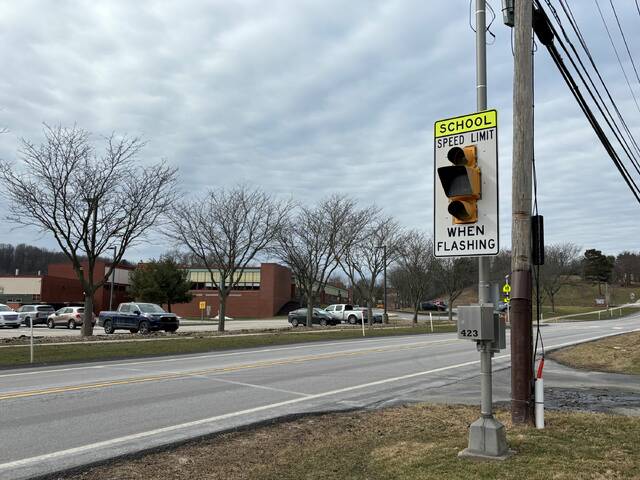The North Allegheny School District plans to eliminate for five years a flat, $10 per-capita tax levied on each adult living in the district.
“The District has historically levied this tax on its residents as part of the annual budget. In an effort to look for opportunities to minimize the tax burden on residents while maintaining a balanced budget, the district has determined that this tax can be eliminated while maintaining fiscal stability,” Kermit Houser, assistant director of finance and treasurer for North Allegheny, said during a Sept. 20 school board meeting.
The tax produced about $400,000 in revenue for the school district every year.
It had a higher impact on lower-paid individuals. Houser called the tax “antiquated.”
“From a personal perspective, I have not voted to raise taxes for over a decade, and I know this entire board is beyond thrilled to finally be able to give our residents a much deserved decrease in taxes through the elimination of the per-capita tax,” said school board President Libby Blackburn.
The five-year budget projection does not include the tax, and Houser said that will not hurt budget revenue.
“This Board is continuously looking for ways to reduce our constituents’ taxes and the recent tailwinds of a higher interest rate environment give me the confidence to eliminate the per-capita tax while maintaining NA’s strong financial position. Most importantly, eliminating this tax will help those in our district most in need,” said school board Director Mike Weniger, who is also chair of the budget and finance committee.
The district’s property tax rate is expected to remain at 19.74 mills for the 2024-2025 school year. The rate is approximately 18 percent lower than the average of the 41 comparable districts in Allegheny County, Houser said.
However, many unknowns can affect the budget either way, he said.
This includes a decline in the overall growth rate of assessed value in the district. Assessed value shows what a property is worth for tax purposes. In the North Allegheny area the growth rate has declined by -o.6%, though Houser said he expects a turn-around to an increase of .75%.
“There’s still time to make that up,” he said.
Overall assessed value has grown at an average rate of 2.4% over the past 10 years, but dipped last year to .98%, due to lawsuits filed over the Allegheny County common level ratio. The ratio is used to determine assessed value of a property, and assessed value and millage determine the size of a property tax bill.
An Allegheny County judge lowered the common level ratio from 81.1% to 63.5%, which would reduce property tax bills on appealed properties.
A decline in the overall growth rate of assessed valuelowers NA’s estimated tax revenues from the current year, Houser said. An increase generates more tax revenue for the district, which helps to offset increases in salaries and benefits and inflationary pressures on supplies and services.
“We are able to invest these cash balances into school code-compliant investments. When federal interest rates were 0%, the investment yield was very low, which resulted in low interest income,” he said.
As the federal government increased interest rates to more than 5.25%, the district has been able to take advantage of the rising interest rates and the school code-compliant investments have yielded approximately $2.5 million in additional revenue in the fiscal year 2022-2023 school year, he said.
“If interest rates stay elevated for longer, we will continue to see additional interest revenue. However, if the federal government changes course and takes interest rates back down, our interest earnings will decrease,” Houser said.
Also, as the student population changes, the number of employees needed to cover classrooms changes.
“Actual needs can be different than what is estimated during the budget process. This is both a risk and an opportunity,” Houser said.
He noted the Pennsylvania Public School Employees’ Retirement System may require a higher contribution from the district in the coming fiscal year.
The PSERS a pension fund for public school employees to which districts are obligated to contribute.
The PSERS contribution rate for next year currently is estimated, the actual rate may be different.
Another budget variable are medical benefits, which are on a calendar year basis. Renewal rates for 2025 will not be known until after the 2024-25 school district budget is passed in the spring of 2024.








